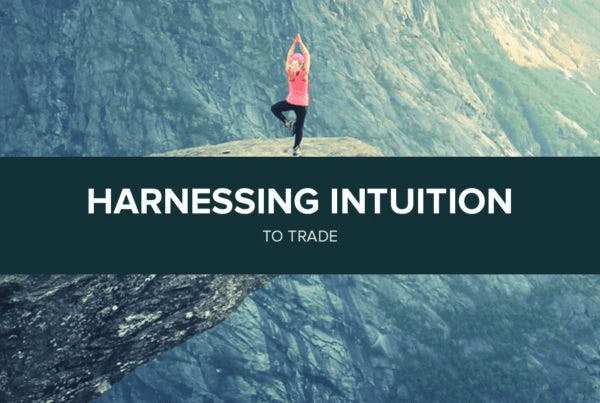
Being able to read another’s mind whether it is about figuring out if that girl likes you or whether it is to able to act correctly when it comes to taking trading decisions, to many intuition seems like a feat beyond one’s capacity. But what if I told you, that you already could? If you are an observant trader, You as who you are, can already read the stock market. As humans we are actually built to intuitively feel what another person is feeling. Having said that, why don’t we realise we have this capacity?
The reason is because we as cerebral beings overcomplicate it. In the times that we live in, there is a worldwide consensus to second guess ourselves, then second guess the second guess and then second guess even that while the opportunity slowly fades away which leaves us with regret of not having acted soon enough. We are pumped with the subtle standards that say, our feelings aren’t true because you need X for it to be true and you need Y and without it you cannot have Z etc. Overtime, due to a string of these thoughts, we end up distorting the truth. But the truth is simple, it is not as complicated we make it out to be. The truth is that human emotion is universal and we as societal creatures are built to feel and understand them.
Meditation helps intuition as it pulls your mind out of itself and pushes it into the present moment. When you stop judging, making assumptions and overthinking, your intuitive sense starts to pick up the environment through “feeling”. Since feelings are encoded into you by experience, reading emotions is not a difficult task if you can silence your mind from pulling you out of the presence.
But this is about reading the stock markets. How to do that? By applying the same logic to a crowd. Although it is difficult to encapsulate the exact mind-set of a crowd, you can get a pulse of it by observing certain crowd behaviour patterns. If you know your own emotions and the emotion of others, in-congruencies and congruencies can give you a rough understanding of what they are thinking. For example, you felt a stock was bearish on a particular day but the price had gone up and based on your observation of price action. You base a judgement that the stock is going to continue to be and the stock price will fall in the future. However, such conclusions need to have a larger context because fixating on a single day’s price action may not be the clear indication of the underlying situation. Reading into the character of the stock market is something that needs to be done overtime and not through assumption based on only one experience. This is difficult for many because they trade with a fixed mind-set to make money rather than to experience intuition through the flow of the stock market. The moment you stop trying to push what you have inside and actively choose to understand the emotional disposition of the stock market participants, you will be able to understand what they’re thinking. There are a wide variety of technical tools and indicators to predict the market manually without intuition but that method has inherent limitations. However, these tools can be used to sharpen your intuitive ability by constant observation and practice. You are built to pick up on it so long as you are immersed in the environment and not in yourself.
For example, when the market is clearly bullish and if you don’t overthink it and instead feel it in the present moment, you can feel spikes of emotion which will cause a surge in the stock market.
The mind is more complicated than the truth. The first step to getting things right is to “un-complicate.”


